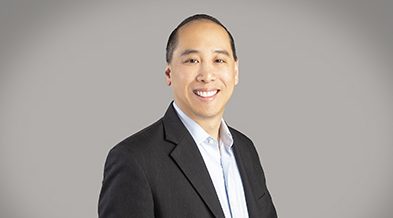Jerry Yu has been working in tax for more than 20 years now. After obtaining a Master’s in tax law, he started at the Big 4 working in expat/inpat taxation for individuals with foreign issues, but after 3 years, he transitioned to do everything else: C-corps, S-corps, LLCs, gift taxes, trusts, and high net worth individuals. In addition, Jerry got his feet wet with quickbooks and bookkeeping, while also getting involved with payroll, property, and sales tax returns. For the last 14 years, he has focused his practice on multi-state owner-managed businesses, entrepreneurs and their families, and everything related to equity compensation, including QSBS, rollovers, ISOs, AMT, 83b elections, etc. As a result of his clients’ exits, he now focuses on high-level strategic tax planning involving complex trusts, state residency transitions, philanthropic issues, and other estate planning vehicles. Jerry Yu presented at start-up companies on stock option planning as well as on webcasts regarding state residency transition planning. He has also been an adjunct faculty member at various universities throughout the country, teaching on a wide range of tax topics including partnership tax, retirement plans, exempt organizations, real estate transactions and topics, and tax research.
How did you get started in this business?
I took a tax class in law school and loved it enough that I went back and got a Master’s in Tax Law, before joining KPMG as a tax intern.
How do you help your clients keep more of their money?
Each client is different, not just the amount and type of income, but also their background, mentality/intentions, and situation that year. In evaluating all of this, I then help by making suggestions about what can be done that year from a tax planning perspective. Even though the tax laws apply similarly to each individual, the proposed solutions are not always cookie-cutter, but rather specifically tailored and customized.
How far in advance should a taxpayer plan for income tax strategies?
It depends. For example, we could plan 2-3 years in advance of a liquidity to take advantage of gifting strategies into irrevocable trusts as a way to multiply QSBS exemptions. Or, maybe in as little as a few months before an indication of interest is filed, perhaps some charitable trust planning could be strategically deployed. Definitely bring an accountant, financial advisor, and estate planning attorney to assist with this kind of deliberate preparation.
When you were starting out, did you know you always wanted to be a tax partner at an accounting firm?
No, definitely not. But I am extremely fortunate. My day passes so quickly because I love tax and all the nuances, challenges, and planning that occur on a daily basis.
How did you get your first customer?
My first income tax client was a referral from an estate planning attorney. The client was an entrepreneur who had founded a company years ago, and was planning an exit in a few years, and so he set up a GRAT to benefit an irrevocable trust set up for his children.
What is one marketing strategy (other than referrals) that you’re using that works really well to generate new business?
I give presentations at various conferences and companies on a variety of tax topics that are relevant to the audience.
What is the toughest issue you’ve had to deal with over the last few months?
With shelter in place and working remotely, the biggest challenge is the isolation our employees feel, especially not being able to bounce ideas off coworkers and the lack of natural socialization that occurs when being near each other. We’ve had to find unique and different ways to keep things personal, lively, and social.
What do you think it is that makes you successful?
For me, I think it’s about being an active listener with an open-minded and friendly attitude.
What has been your most satisfying moment in business?
It’s the fact that I absolutely love what I do. From mentoring our younger generation of accountants to helping my clients plan tax-saving strategies, I’m extremely passionate about my career and feel extremely lucky to be where I am today.
What does the future hold for you in your career? What are you most excited about?
I see myself in 5 years and again in 10 years doing what I’m doing now. I am most appreciative of the fact that I will continue to engage in a career that is rewarding, challenging, and dynamic.
What business books have inspired you?
Outliers, 7 Habits of Highly Effective People, and Rich Dad Poor Dad
What is a recent purchase you have made that’s helped with your business?
A good microphone: clients have complained about the one from my laptop.
What is a tax strategy that many of your clients are interested in and/or executing recently?
Many of my clients these days are setting up a grantor charitable lead unitrust in the year of a large liquidity event. This is a relatively complex estate planning vehicle that is more of an income tax play than an estate tax one, but many clients prefer this strategy because they may be able to get some, if not all, of their money back if it is planned and executed properly.

